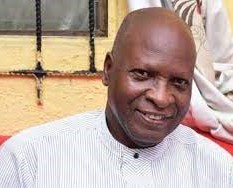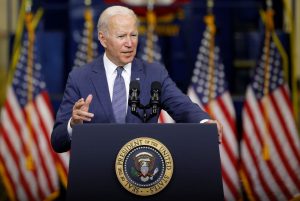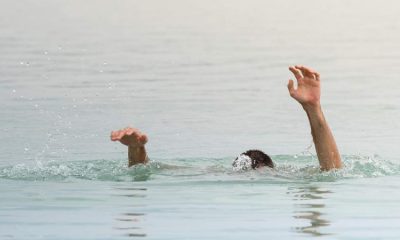OPINION
Ika Weekly Newspaper and a Catalyst for New Order

By Jerome-Mario Utomi
In the words of Ben Carson retired Director of Pediatrics Neurosurgery at John Hopkins Hospital, and now a Washington Times Columnist and Fox News contributor, many people use the terms wisdom and knowledge interchangeably. They are, however, quite different, and have in no way confers the other.
Knowledge is familiarity with facts. The more knowledge one has, the more things one is capable of doing, but only with wisdom is one able to discern which of the many things they are capable of doing should be pursued and in what order.Certainly, the above words/description fittingly captures the clarity of vision and singleness of purpose that set the stage for the advent of Ika Weekly Newspaper, a weekly tabloid published at Agbor in Delta State
Established in June 1989, the Ika Weekly Newspaper which currently operates both print and online, is, for the purpose of clarity, a community newspaper based in Agbor, owned by the Ewuru, Ika South Local Government Area, born publisher, Steven Ekiri-Mekiriuwa Ashien, a former newspaper vendor/bookseller.
Among other objectives, the newspaper was birthed to disseminate across the world news/ information that is Ika nation-specific, act as a vehicle for the propagation and promotion of Ika culture and tradition while recognizing/celebrating Ika sons and daughters that demonstrate uncommon talent in their various fields of endeavors. The Newspaper’s interest/attention/focus was neither at war nor in conflict with any state, regional/provisional, or nationally owned Newspapers.
While the above information is important as it provides relevant direction for understanding the origin of the Newspaper, readers with critical minds may be tempted to put forward the following question; what is the kernel of this piece/ intervention? Why is the author fixated with a community newspaper and not even a national one, at this critical time when Nigeria as a country is going through the pangs of insecurity and the masses weakened by economic crunch?
One possible answer to the above questions is that aside from the fact that the Newspaper’s progress is a reflection of a leader’s search for new fields to increase the wealth, culture and socioeconomic well being of his people, Ika Weekly Newspaper’s odyssey, is laced with profound lessons to draw by the generality of mankind. Media professionals/industry on their part has enough insight to gain from how Ashien’s grappled with the problems of self-reinvention in order to keep the News organization afloat. Most superficially, similar to the knowledge of history which is useful to the scientist, the economist, or the student of literature or philosophy on the grounds that no science or art is static, the piece in a synoptic manner x-rays the account of problems faced by the publisher in his resolve to build the Newspaper House and how he set about solving those problems after pondering on them and the limited options available. To ignore or misstate this account could lead one to wonder in a dilemma.
Let’s take a detailed look at the particulars of the above claim.
Very fundamental is Ashien’s early consciousness/understanding that economic principles of wealth development is very important for the oppressed communities and will go a very long way towards liberating them from the influence of the elite class, even more, is education, he set out to use the media as a vehicle to educate, enlighten and socially influence his people.
Now, this is the first lesson arising from the self-inflicted responsibility of educating the people. The task came in double folds. As he (the publisher) bothers to educate the people, he seizes the opportunity to educate himself and exit being educationally disadvantaged.
Says a commentator, the amazing contradiction is that, with little formal education, the man now embodies what it means to be educated. He has read more than the self-acclaimed educated people. His fascination with philosophy has guided his reading habit well. You can be forgiven for doubting his claim of lack of proper education when you consider his proven editing skill and publishing track records. For a man who claims as I remember it, to have started his career as a newspaper vendor in Warri, he has totally reinvented himself and has made his mark in the world of letters.
Before you hastily conclude that things became rosy from this point, wait till you cast a glance at the next paragraph.
But as it is a trademark of many media organizations across the world, 16 weeks of initial publications, the newspaper left the newsstand- a development attributable to lack of funds/uncontrollable reasons.
With the collapse of this effort which Mr. Ashien had invested heavily, life again started to become very rough for him. Like many Nigerians at that time, the more he tried his hands on other ventures, the worst it became.
However, as a determined man who always thinks positively coupled with his love for education, he fell back on selling second-hand books, to the extent that he started traveling to Ghana to buy second-hand books which he was hawking from one higher institution in Nigeria to another.
The harder he tried, the more difficult things became.
At this time, Mr. Steve Ashien became virtually housebound, lonely, and desolate because finding money to travel out of Agbor became extremely difficult.
But as someone that understands that courage faces fear and masters it while cowardice represses fear, and is thereby mastered by it, he neither allowed himself to be overwhelmed by the uncertainties of life nor lost the will to live.
Rather, on one particular day in 2007, he did something theatrical.
He suddenly decided to go back to Ika Weekly Newspaper publishing. The surprising things about this decision were that at that time, Mr. Steve Ashien did not have any money to invest in his dream newspaper publishing.
Though a faith-based man who always put God first in all he does and whose habit of giving/generosity, many characterized as legendary. That notwithstanding, people who knew about his intention gave him neither the needed support nor a chance to succeed. They were skeptical about how possible it would be for him to do magic this time around.
But as native wisdom proclaims, ‘the protestation of the innocent chick does not prevent or stall the sacrifice. If anything, the protestations enriched the sacrifice and hasten its value and efficacy. Likewise, the flood of oppositions did not stop Mr. Steve Ashien from plunging into Ika Weekly Newspaper publication. Rather, such doubt and oppositions acted as a tonic. He prayed to God for direction and held on to honesty as his hardest currency while working night and day, sleeping on the floor of his office in order to ensure that the Newspaper hits the newsstand.
As luck will have it, help however came from a few people who were ready to report, highlight, and analyze the current affairs/events and topical issues happening in Ika land that was of interest to the people especially in the political and community leadership.
Clearly, a bracing account particularly as the Newspaper has since then, remained uninterrupted at the newsstand for over years with workers salaries promptly and dutifully paid. Not even the dreaded outbreak of the Corona Virus pandemic which disrupted millions of businesses across the world could halt its publication.
Also alluring is the awareness that the organization has grown into other areas of interest. For example, it established the St. Steven’s Library of congress- a resource centre for research and documentation of critical information, and study of Ika history, people, culture, and tradition. However, this library is no longer functional. But the newspaper has remained till date that is 14 years.
Despite these achievements, Ashien has refused to be seen. Instead, he opts to function like a cameraman who records events/successes without getting noticed.
But there exists a difference, and that is the fact that even in his ‘hiding’, he remains not just a shining star but a source of inspiration to the youths, a good ambassador of Ika nation, and most importantly, a Catalyst for New Order. For its part, the newspaper has become a leading light reputed for filling the information gap in Ika Land.
Utomi, is the Programme Coordinator (Media and Public Policy), Social and Economic Justice Advocacy (SEJA), Lagos. He could be reached via;jeromeutomi@yahoo.com/08032725374
OPINION
A silent Emergency: Soaring Costs of Diabetes Care Spark Alarm

By Folasade Akpan
For Mrs Schola Effiong, a 58-year-old confidential secretary in Calabar, managing diabetes in today’s economy feels like “climbing a hill that only gets steeper”.
Diagnosed in 2009, she said her monthly expenditure on insulin, tablets, laboratory tests and monitoring supplies now exceeds ₦150,000.
“You cannot stop taking the drugs, yet the cost keeps going up.
“Sometimes I do not have the money to buy some of them at the same time,” she said.
Her struggle mirrors the experiences of thousands of Nigerians at a time when experts warn that diabetes is becoming a major public health concern.
According to a 2018 national meta-analysis by Uloko et al.
, titled “Prevalence and Risk Factors for Diabetes Mellitus in Nigeria: A Systematic Review and Meta-Analysis”, Nigeria’s diabetes prevalence stands at 5.7 per cent, representing 11.2 million adults.The authors defined diabetes mellitus as a metabolic disorder of chronic hyperglycaemia caused by absolute or relative insulin deficiency and associated with disturbances in carbohydrate, protein and fat metabolism.
The study, which pooled data from numerous research works across the country, revealed wide regional disparities.
The prevalence rate was 3.0 per cent in the North-West, 5.9 per cent in the North-East, and 3.8 per cent in the North-Central, respectively.
The rates were higher in the southern part of the country: 5.5 per cent in the South-West, 4.6 per cent in the South-East, and 9.8 per cent in the South-South.
Experts say these patterns reflect changing lifestyles, rapid urbanisation and limited access to routine screening.
However, for many patients, statistics tell only a fraction of the real story.
Mr Offum Akung, a 57-year-old teacher in Cross River, said he had to ration his drugs because prices kept rising faster than his salary.
“I spend over ₦40,000 a month and still cannot buy everything on my prescription.
“I rely mostly on Glucophage now; when money allows, I add Neurovite Forte; diabetes management has become more difficult than the disease itself,” he said.
He appealed for government intervention, saying many patients were already “giving up”.
The Second Vice-President of the Diabetes Association of Nigeria, Mr Bernard Enyia, said the economic situation had pushed many Nigerians with diabetes into dangerous coping methods.
He said that he once managed his condition with about ₦70,000 monthly, but currently spends more than ₦180,000.
“Insulin has become something you pray for, while some people are sharing doses or skipping injections.
“Once you break treatment, the complications come quickly.”
Enyia, who lost his job as a health worker in 2017 due to frequent hospital visits, described the emotional toll as immense.
“It affects your finances, your social life, your marriage — everything. Many Nigerians with diabetes are quietly drowning,” he said.
Globally, concerns are also rising.
The World Health Organisation (WHO) estimates that more than 24 million adults in Africa are living with diabetes, a figure projected to rise to 60 million by 2050.
Marking World Diabetes Day 2025, WHO Regional Director for Africa, Prof. Mohamed Janabi, warned that rising obesity, lifestyle changes and weak health systems were fueling an “unprecedented wave of diabetes” across the continent.
He urged governments to prioritise access to affordable insulin, diagnostics and long-term care.
More so, pharmacists say they are witnessing the crisis firsthand.
The Senior Vice-President, Advantage Health Africa, Mr Adewale Oladigbolu, said many patients were no longer able to maintain regular medication schedules.
“People buy drugs today and skip them tomorrow because they do not have money.
“With non-adherence, they never reach therapeutic goals.”
Oladigbolu, a Fellow of the Pharmaceutical Society of Nigeria, said that locally manufactured metformin remained in high demand due to affordability, but insulin-dependent patients faced the harshest burden.
He stressed that diabetes care extended far beyond drugs.
“You need glucometers, strips, blood pressure monitors and regular tests.
“In countries where insurance work, patients do not think about the cost; in Nigeria, they pay for everything out of pocket,” he said.
He called for diabetes care to be covered under health insurance to reduce the financial burden on patients.
President of the Diabetes Association of Nigeria, Prof. Ejiofor Ugwu, described the rising cost of treatment as “a national crisis hiding in plain sight.
He said insulin, which sold for about ₦3,500 four years ago, presently costs ₦18,000 to ₦22,000 per vial.
“Test strips that were ₦2,000 now sell for ₦14,000, while glucometers have risen from ₦5,000 to over ₦25,000.
“On average, a patient now needs between ₦100,000 and ₦120,000 every month. Imagine earning ₦50,000 and being asked to spend twice that on one illness.”
He warned that between half and two-thirds of Nigerians with diabetes remain undiagnosed.
“We are seeing more kidney failure, more limb amputations, more blindness.
“These are late presentations caused by delayed or inconsistent treatment.”
Ugwu urged the Federal Government to urgently subsidise essential anti-diabetic medications and remove taxes on their importation.
“Most of these drugs are produced outside the country.
“Once you add import duties and other charges, prices become unbearable; subsidies and tax waivers could drop costs by at least 30 per cent,” he said.
He also called for expansion of the National Health Insurance Authority (NHIA) to cover a wider range of anti-diabetic medicines, glucose meters and strips — none of which are currently covered.
For many Nigerians, however, the struggle continues daily.
Across households, clinics and pharmacies, the message is the same: as Nigeria’s diabetes prevalence rises and treatment costs soar, more patients are slipping through the cracks — some silently, others painfully — while waiting for meaningful intervention.
In all, stakeholders say diabetes is a national emergency; people are dying quietly because they cannot afford medicine; hence the urgent need for relevant authorities to make anti-diabetic medications accessible and affordable.(NAN)
| ReplyReply allForwardAdd reaction |
OPINION
Is Community Parenting Still Relevant?

By Dorcas Jonah
In the Nigerian culture, extended families and communities play a crucial role in care-giving, instilling values, and supporting the development of children.
This cultural heritage of community parenting emphasises shared responsibility in raising children.
But in contemporary Nigeria, this age-long practice is facing enormous challenges due to modernisation.
In scrutinising this trend, some parents are of the view that community parenting helps in instilling morals and curbing social vices among children and youths, while others believe it is outdated.
Some parents are of the belief that their children are their responsibility; so they do not tolerate others correcting their children.
By contrast, others say that community parenting, when done with good intentions, can help raise a better society.
Mr Peterson Bangyi, a community leader in Dutse Makaranta, said that community parenting was the bedrock of raising a child.
He said the adage: “it takes a village to raise a child”, remained a powerful principle in contemporary society.
According to him, by Nigeria’s cultural norms and values, a child is owned by everyone; therefore, the grandparents, aunts, uncles, and neighbours actively contribute to raising children.
“This approach fosters a sense of belonging and ensures children grow up with diverse role models.”
Bangyi said that the extended families practiced by more communities were the backbone of parenting.
“But modernisation has taken away this practice as most families do not want people to come close to their children,’’ he said.
Mrs Monica Umeh, a mother of two, emphasising on the importance of community parenting, said that it played significant role in shaping her upbringing as a child and young adult.
Umeh advised that when correcting other people’s children, it is essential to do so with love and good intentions, without any form of bitterness.
“I am a strong advocate of community parenting as long as it is done with love and good intentions.
“I believe no parent can single-handedly raise a child without the support of others,’’ he said.
Mr Temitope Awoyemi, a lecturer, said that community parenting was crucial and could not be over-emphasised.
He said that community parenting helped society in inculcating strong moral values in children and youths, adding that modern life could be isolating for parents.
Awoyemi said that strong community support networks had been shown to lower parental stress levels and promote a more optimistic approach to raising children.
“It also ensures that a child receives guidance and correction from various adults, providing a broader, more consistent moral and social baseline that might be missed by parents who are busy with work.
“Community parenting encourages collaborative, interdisciplinary support from various community members and agencies in addressing a child’s developmental needs comprehensively.
“It focuses on prevention of long-term problems and celebrating individual strengths,’’ he said.
Awoyemi said that as the society continued to evolve, community parenting could adapt to ensure children benefitted from both cultural roots and contemporary innovations.
Mr Fortune Ubong, a cultural enthusiast, attributed the increasing crime rate in Nigeria to lack of community parenting that had extended to schools, and government institutions.
According to him, community parenting remains the foundation of every child’s moral upbringing.
“Most parents are now focused on earning a living and improving their lifestyle, in the process abandoning their primary duty of molding and guiding their children; this is where community parenting plays a greater role,” he said.
However, Mrs Joy Okezia, a businesswoman, said that given the recent developments in the country, correcting a child should be the sole responsibility of their parents.
Okezia said that she preferred to correct her children herself as she knew them better than anyone else.
She also noted that with the rising insecurity in the country, intervening to correct a child could pose a significant risk to the person.
Mrs Ijeoma Osita, a civil servant, also shared Okezia’s view, saying that a child’s behaviour was shaped by their family upbringing.
She said that if a child was not taught to love and respect others at home, an outsider would have little impact in correcting such a child.
Osita emphasised that parents should in still in their children the values of love and respect regardless of their status or background.
According to her, a child brought up with good values is less likely to misbehave well.
She cited the Holy Bible, saying, that says: “Train up a child in the way they should go, and when they are old, they will not depart from it’’.
Osita said that community parenting remained a vital aspect of Nigerian culture, promoting shared responsibility and resilience among families.
He opined that while modernisation posed challenges, blending traditional practices with modern strategies offered a promising path forward.
Observers say robust community connections are linked to better social-emotional development, academic achievement, and overall well-being for children.
They say that in modern society, amidst the digital world, economic instability, and busy work schedules, parents face pressures, making community support systems fundamental.
All in all, stakeholders are of the view that combining traditional community parenting with modern childcare – integrating technology, play-based learning, and skill acquisition – will produce well-rounded children.(NAN)
FEATURES
Victor Okoli: The Young Nigerian Tech Founder Building Digital Bridge Between Africa and America

Victor Chukwunonso Okoli, founder of Vnox Technology Inc. (USA) and Vnox Limited (Nigeria), is steadily emerging as one of the most promising new voices in global travel-tech. His mission is clear: bridge the technological gap between Africa and the United States, redefine global travel systems, and empower a new generation of skilled youths through innovation-driven opportunities.
In a statement issued in Onitsha, Anambra State, by Vnox Limited (Nigeria), the company emphasized Okoli’s growing influence as a Nigerian international graduate student contributing meaningfully to U.
S. innovation. His rising travel-technology platform, FlyVnox, currently valued at an estimated $1.7 million, is positioning itself as a competitive player in the global travel ecosystem.Okoli explained that Vnox Technology was founded to “train, empower more youths, create global employment opportunities, and drive business growth through our coming B2B portal inside the FlyVnox app.” The platform’s new B2B system aims to support travel agencies, entrepreneurs, and businesses across Africa and the diaspora—giving them access to modern tools, previously inaccessible technologies, and global opportunities.
Several young men and women are already employed under the expanding Vnox group, with more expected to join as the brand grows internationally.
Born and raised in Eastern Nigeria, Okoli’s early life exposed him to the realities and frustrations faced by international travelers and diaspora communities. After moving to the United States for graduate studies, he transformed those experiences into a bold technological vision—building systems that connect continents and create seamless mobility for users worldwide.
At the center of that vision is the FlyVnox app, a modern airline-ticketing platform built with global users in mind. Combining American engineering precision with African mobility realities, FlyVnox offers international flight search, multi-currency support, secure payments, transparent pricing, and a clean, intuitive interface.
Beyond FlyVnox, Okoli has built a growing tech ecosystem under Vnox Technology Inc., which oversees several innovative ventures, including: Vnox TravelTech Solutions LLC (FlyVnox App), VnoxPay (fintech), VnoxShop / Zyrlia (e-commerce)
VnoxID / Nexora (digital identity and smart business card solutions)
Vnox Limited (Nigeria) anchors African operations, media services, and talent development—ensuring the brand remains rooted in its home continent even as it grows globally.
Okoli’s work has broad significance for both Africa and the United States. He represents the powerful impact of immigrant entrepreneurship on global competitiveness—creating new jobs, driving innovation, strengthening U.S.–Africa commercial ties, and contributing to the development of practical, scalable technologies.
The statement concludes that Vnox Technology is a brand to watch. As FlyVnox gains international traction and the Vnox group expands its footprint, Victor Okoli stands as a symbol of a rising generation: African-born, globally minded, and building technologies that connect and serve the world.
































